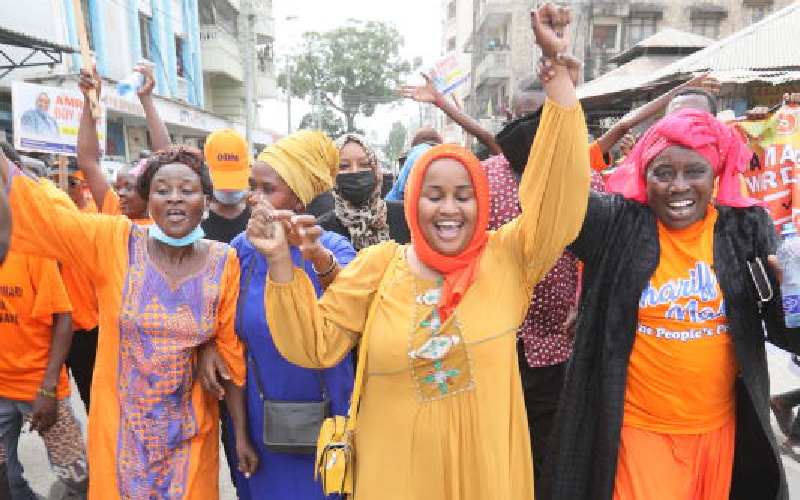×
The Standard e-Paper
Home To Bold Columnists

Orange Democratic supporters match a long Mvita street in Mombasa. [Omondi Onyango,Standard]
Deputy President William Ruto’s lieutenants remained bullish yesterday about his prospects in the battle to wrestle the Coast from ODM leader Raila Odinga ahead of the August 9 General Election.